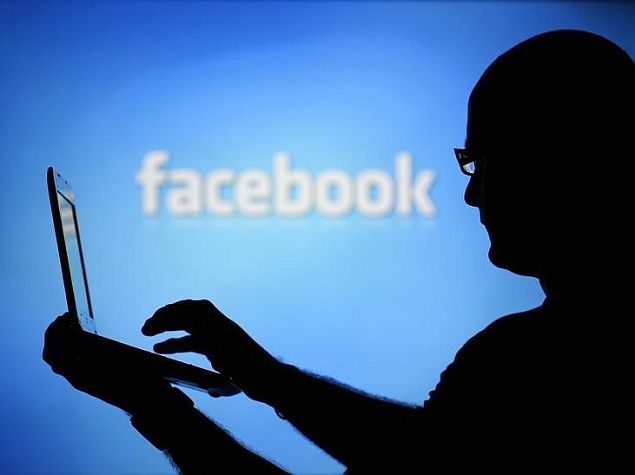- Home
- Social networking
- Social networking News
- Japan Turns to 'I Am Kenji' Facebook Page on IS Hostage Crisis
Japan Turns to 'I Am Kenji' Facebook Page on IS Hostage Crisis

The video, posted online last week, showing Goto and another Japanese hostage, has dominated mainstream media in Japan, a peaceful and relatively crime-free nation unaccustomed to such violence.
But as government officials made stately pronouncements on TV news, regular people were taking action of their own - online, with some rallying to Goto's support and others mocking the terrorists with images - in a quiet but massive show of defiance.
"We want Kenji to come home," said Taku Nishimae, a Japanese filmmaker living in New York, who started the "I am Kenji" Facebook page, right after seeing last week's video demanding Japan pay $200 million within 72 hours for the hostages' release.
The page, now with more than 25,000 "likes" and growing, asks people to post self-portraits and other photos with a sign that says: "I am Kenji."
It's a reference to the "Je Suis Charlie," or "I Am Charlie," worldwide slogan showing solidarity with Charlie Hebdo, the Paris weekly newspaper where 12 people were killed in a terrorist attack earlier this month.
"Let's show that we're united, and tell that it's unjust to kill innocent citizens and it's meaningless to turn entire nation against you," the Facebook page says in English, followed by a translation in Japanese.
Nishimae, 52, stressed the page is not about taking political sides, or even about freedom of the press, but a more general human statement, like a desperate prayer.
About a thousand people have posted photos, some of them portraits holding handwritten messages, some identifying themselves as Muslim, but all with the same message.
The slogan has taken off. "I am Kenji" was among the signs held up at a demonstration of about 1,000 people outside the prime minister's office over the weekend, demanding the government do more to save the hostages.
"It's great people are getting inspired," said Nishimae, who has known Goto, 47, for 12 years and has worked with him on documentary movies. "Even now, I can't believe it. But it is Kenji. It feels so unreal."
They had hit it off right away, he recalled. Goto devoted his life to telling the stories of refugees and children in war zones, and had worked with UNICEF.
Another video over the weekend, whose authenticity could not be confirmed, appeared to show Goto holding a photo of the body of Haruna Yukawa, the other hostage, with the demand changing to a prisoner exchange. Japanese Prime Minister Shinzo Abe has said that video is likely credible.
Over the last week, Japanese Twitter has seen a stream of doctored images taken from the first video, including cutesy manga-like figures juxtaposed on top of the images of the two kneeling hostages as well as the masked man standing in the middle.
Nobuyuki Hayashi, a consultant and technology journalist, who happened to know Goto in junior high school, says he finds Twitter chatter disturbing, because of the anonymity that allows people to voice irresponsible and sometimes hurtful views.
"We needed to avoid these Japanese netizens cloaked under anonymity to make any constructive discussion," Hayashi said.
Many Japanese are worried for Goto, but don't know what to do and feel frustrated, he said. The Facebook page allowed them to do something. They can also see the concerns of others around the world.
"And that is encouraging," Hayashi said. "And we can all hope that, when Kenji returns to Japan sometime soon, he would be happy to see so many people supporting him."
For the latest tech news and reviews, follow Gadgets 360 on X, Facebook, WhatsApp, Threads and Google News. For the latest videos on gadgets and tech, subscribe to our YouTube channel. If you want to know everything about top influencers, follow our in-house Who'sThat360 on Instagram and YouTube.
Related Stories
- Samsung Galaxy Unpacked 2025
- ChatGPT
- Redmi Note 14 Pro+
- iPhone 16
- Apple Vision Pro
- Oneplus 12
- OnePlus Nord CE 3 Lite 5G
- iPhone 13
- Xiaomi 14 Pro
- Oppo Find N3
- Tecno Spark Go (2023)
- Realme V30
- Best Phones Under 25000
- Samsung Galaxy S24 Series
- Cryptocurrency
- iQoo 12
- Samsung Galaxy S24 Ultra
- Giottus
- Samsung Galaxy Z Flip 5
- Apple 'Scary Fast'
- Housefull 5
- GoPro Hero 12 Black Review
- Invincible Season 2
- JioGlass
- HD Ready TV
- Laptop Under 50000
- Smartwatch Under 10000
- Latest Mobile Phones
- Compare Phones
- Moto G15 Power
- Moto G15
- Realme 14x 5G
- Poco M7 Pro 5G
- Poco C75 5G
- Vivo Y300 (China)
- HMD Arc
- Lava Blaze Duo 5G
- Asus Zenbook S 14
- MacBook Pro 16-inch (M4 Max, 2024)
- Honor Pad V9
- Tecno Megapad 11
- Redmi Watch 5
- Huawei Watch Ultimate Design
- Sony 65 Inches Ultra HD (4K) LED Smart TV (KD-65X74L)
- TCL 55 Inches Ultra HD (4K) LED Smart TV (55C61B)
- Sony PlayStation 5 Pro
- Sony PlayStation 5 Slim Digital Edition
- Blue Star 1.5 Ton 3 Star Inverter Split AC (IC318DNUHC)
- Blue Star 1.5 Ton 3 Star Inverter Split AC (IA318VKU)

















